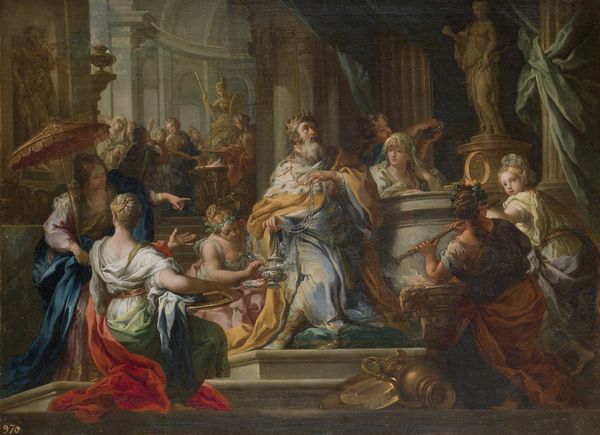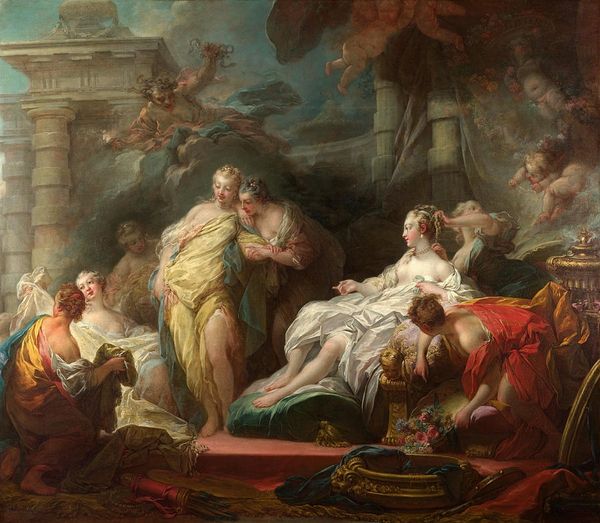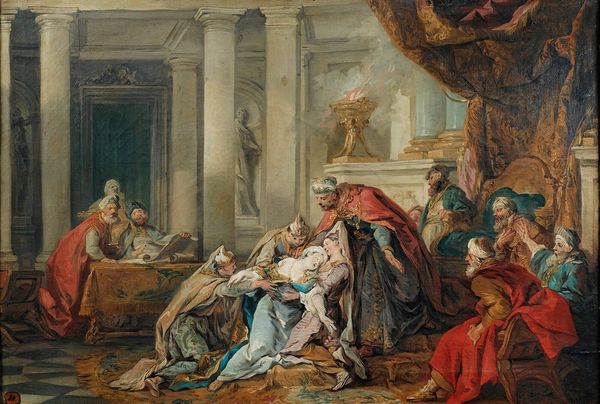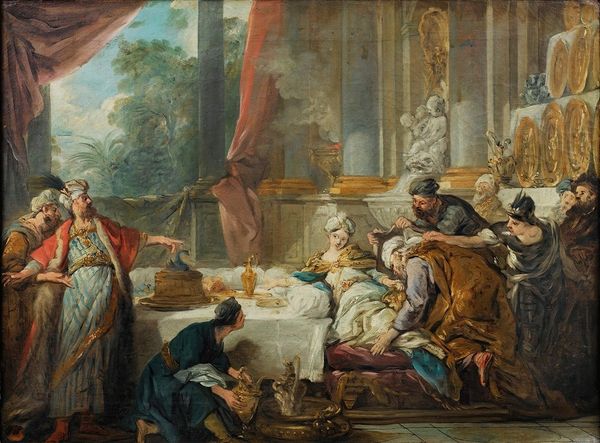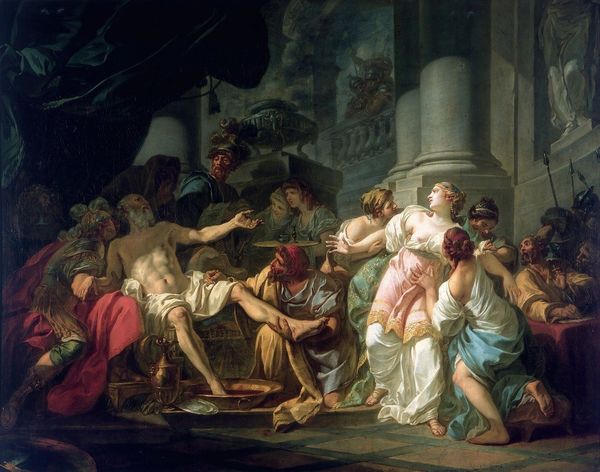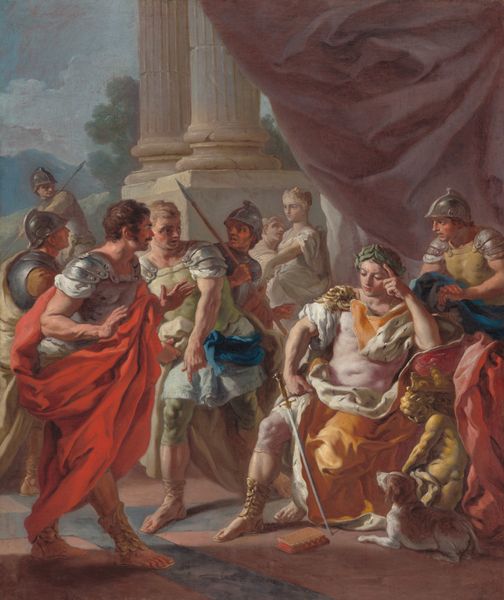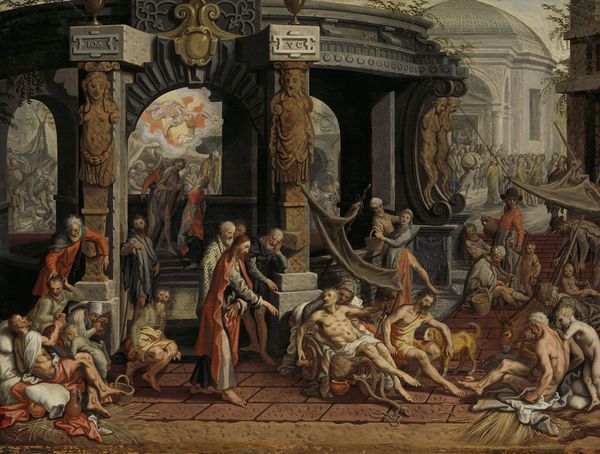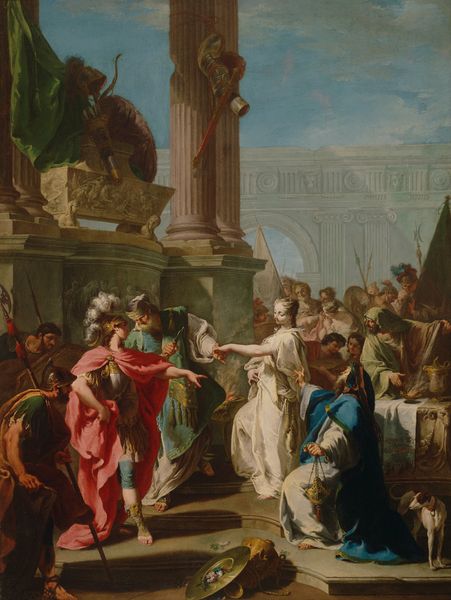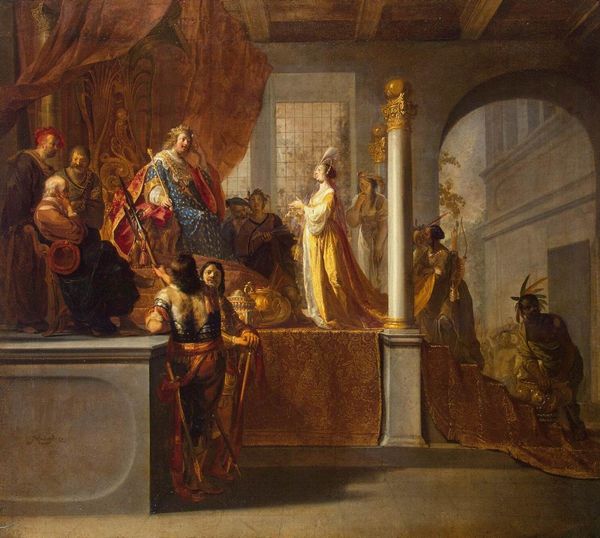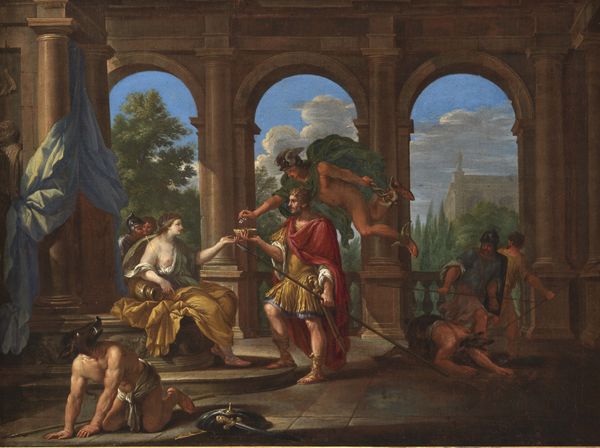
Alexander the Great in the Temple of Jerusalem 1736
0:00
0:00
sebastianoconca
Museo del Prado, Madrid, Spain
painting, oil-paint
#
gouache
#
allegory
#
narrative-art
#
baroque
#
painting
#
oil-paint
#
figuration
#
oil painting
#
classicism
#
underpainting
#
painterly
#
genre-painting
#
history-painting
#
academic-art
#
watercolor
Copyright: Public domain
Sebastiano Conca painted ‘Alexander the Great in the Temple of Jerusalem’ in the 18th century, likely using oil paints on canvas. The material qualities of oil paint – its viscosity, the capacity for layering, and the luminosity of its pigments – allow for dramatic visual effects. The work appears effortlessly produced. But this belies the labor involved, not only in the artist's execution, but in the procurement and preparation of materials. Pigments would have been derived from various sources, some precious and rare, reflecting global trade networks even then. The canvas itself, likely linen, required cultivation, weaving, and stretching. All this before Conca even picked up a brush. The painting also speaks to the economy of art in the 1700s, its commission reflecting wealth and patronage, the very basis for an artist's studio and production. So while we admire the finished image, we should also consider the vast web of materials, processes, and social relations that made it possible. Recognizing this context allows us to appreciate this painting beyond the purely aesthetic.
Comments
No comments
Be the first to comment and join the conversation on the ultimate creative platform.
